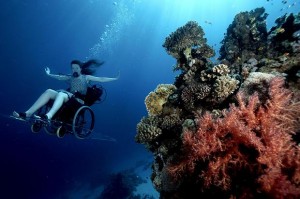Technology Bloggers is pleased to support the Integrated Network for Social Sustainability (INSS) Digital media competition “Visions of Social Sustainability”.
The overall goal of the INSS network is to produce a clearer, more applicable definition of social sustainability, and to create opportunities for engaging people in discussions about social sustainability. The network is made up of individuals from various jobs and professions to consider social sustainability, and aims to put people engaging with social sustainability in touch with one another to speed up and promote understanding of this important aspect of sustainability.
The competition is looking for creative explorations of what social sustainability means, how it is being pursued, and how it might be advanced further. The hope is that it will push forward discussion of social sustainability by bringing a broader range of voices into the discussion.
We would invite all readers to think about submitting an entry, give a voice to their ideas and push debate and action in a positive way. Technology Bloggers Editor Jonny Hankins is part of the team that have prepared the call, and through the Bassetti Foundation will help to promote the winning entry.
So why not get your camera or telephone out and have a go?
— Call For Entries —
Multi-Media Competition: Visions of Social Sustainability
What does social sustainability mean to you? Where do you see it in practice? And what are the ingredients for a more sustainable world?
In the past several decades, sustainability has grown into an important and all-encompassing priority for communities and nations around the world. While there is little debate that current patterns of development, production, and consumption are un-sustainable, there is less agreement about what a sustainable world looks like.
There are countless visions of sustainability, and the Integrated Network for Social Sustainability is interested in your vision of social sustainability in a short video or digital media presentation.
Eligible Entries
Amateur or non-professional artists/producers may submit one piece of work in any digital media format up to 10 minutes in length, including but not limited to videos, photo essays, games, and apps. Submissions may be produced using cell phones or other household recording technologies. Limited to one entry per person or group.
How to Submit
Submissions can either be sent directly to visions.of.sustainability@gmail.com or via a link to any large file hosting service (dropbox, hightail etc). Email us with any problems uploading or sending the files. To be considered for the competition, entries must be received by 5 pm EST on January 3, 2015.
Judging
All eligible submissions will be hosted on the INSS YouTube channel and website. The competition will be judged through public vote, and will be promoted through the member institutions of the INSS.
Winning Entry Publicity
The winning entry will be shown at the April 2015 INSS annual conference, where its producer(s) will be invited to present their work. The entry will also be hosted on the INSS website and promoted in other INSS communications. The Bassetti Foundation will promote the winning entry on its website and will seek international press coverage of the winning producer(s).
Rules
- Your entry must respect copyright. Any music, video and photos must be your own or used with permission and acknowledged in your description (royalty free or stock audio/photos are ok to use).
- Your entry must not be owned by someone else (e.g. if you’ve entered into another contest and they now own it).
- Your entry should be appropriate for a public audience in language and images.
- Still image and/or graphic slide shows are also eligible, as well as any other digital format.


